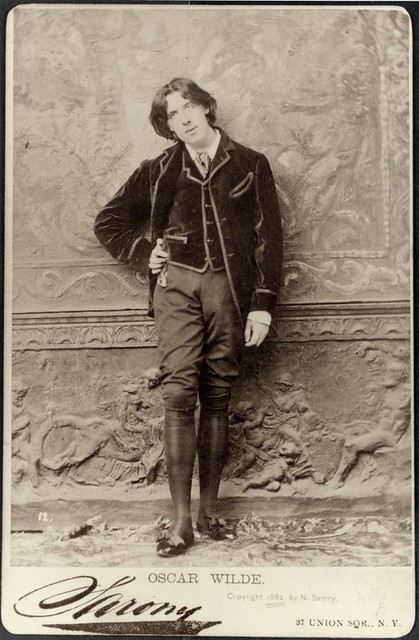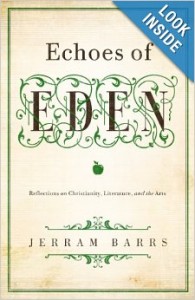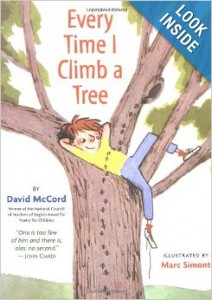
© 2008 George Eastman House, Flickr | PD | via Wylio
Oscar’s father, Sir William Wilde, was an ear and eye doctor, and his mother, Lady Jane Francesca Agnes Elgee Wilde, was a writer, poet, and translator.
Oscar was profoundly affected by the death of his younger sister when she was ten years old, and for his lifetime he carried a lock of her hair sealed in a decorated envelope.
Wilde had two older half-sisters who died in an accident when their gowns caught fire after a ball.
In 1876 Oscar had a brief romantic affair with a girl named Florence Balcome, who later married Bram Stoker, the author of Dracula.
He and his wife Constance had two sons, Cyril and Vyvyan. (Really, Vyvyan?) Vyvyan later changed the spelling of his name to Vivian. (Who wouldn’t?) Except for the unfortunate name choice, Oscar was an attentive and loving father who spent lots of time with his sons.
When Wilde was arrested, convicted and sentenced to prison for “gross indecency”, Constance attempted to protect her sons from the scandal. She took the children to Switzerland and took the old family name of Holland for herself and the boys.
Oscar mostly spent the last three years of his life (after prison) wandering Europe, staying with friends and living in cheap hotels. Sad but true.
Oscar Wilde quotes:
“The public have an insatiable curiosity to know everything, except what is worth knowing.”
“The world is a stage, but the play is badly cast.”
“A thing is not necessarily true because a man dies for it.”
“A simile committing suicide is always a depressing spectacle.”
“An idea that is not dangerous is unworthy of being called an idea at all.”
“Everything popular is wrong.”
“There is no such thing as a moral or an immoral book. Books are well written, or badly written.”
“Children begin by loving their parents; as they grow older they judge them; sometimes they forgive them.”
“Nowadays people know the price of everything and the value of nothing.”
What have you read of Oscar Wilde’s work? His plays are delightfully funny and witty, and The Picture of Dorian Gray is quite insightful in its own way, as long as one takes almost anything the characters say or do and turns it upside down to do or believe the opposite.

